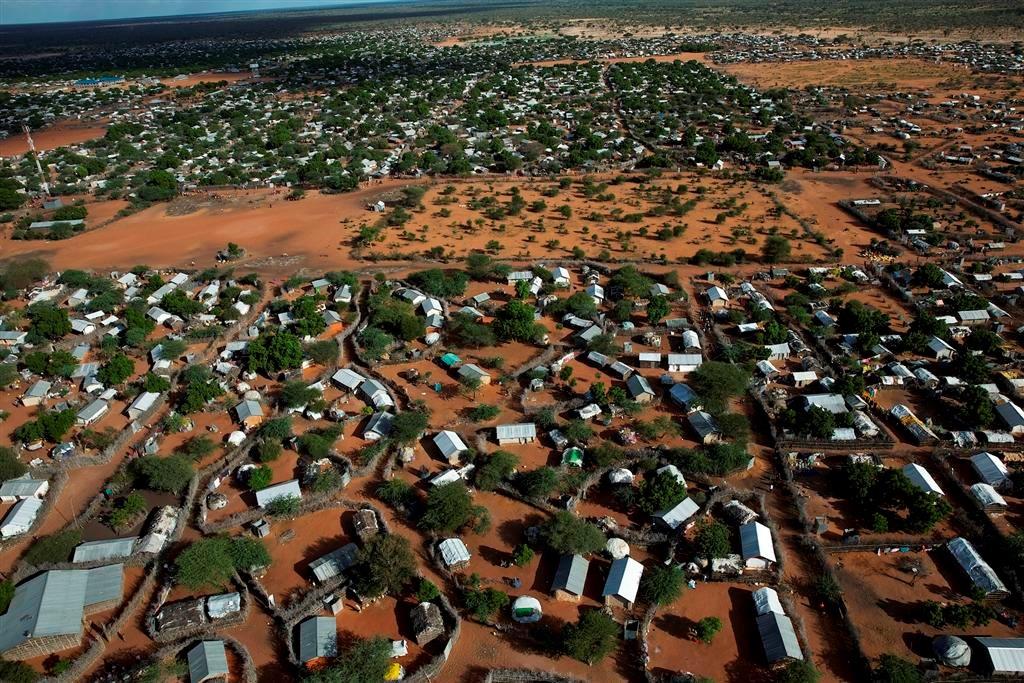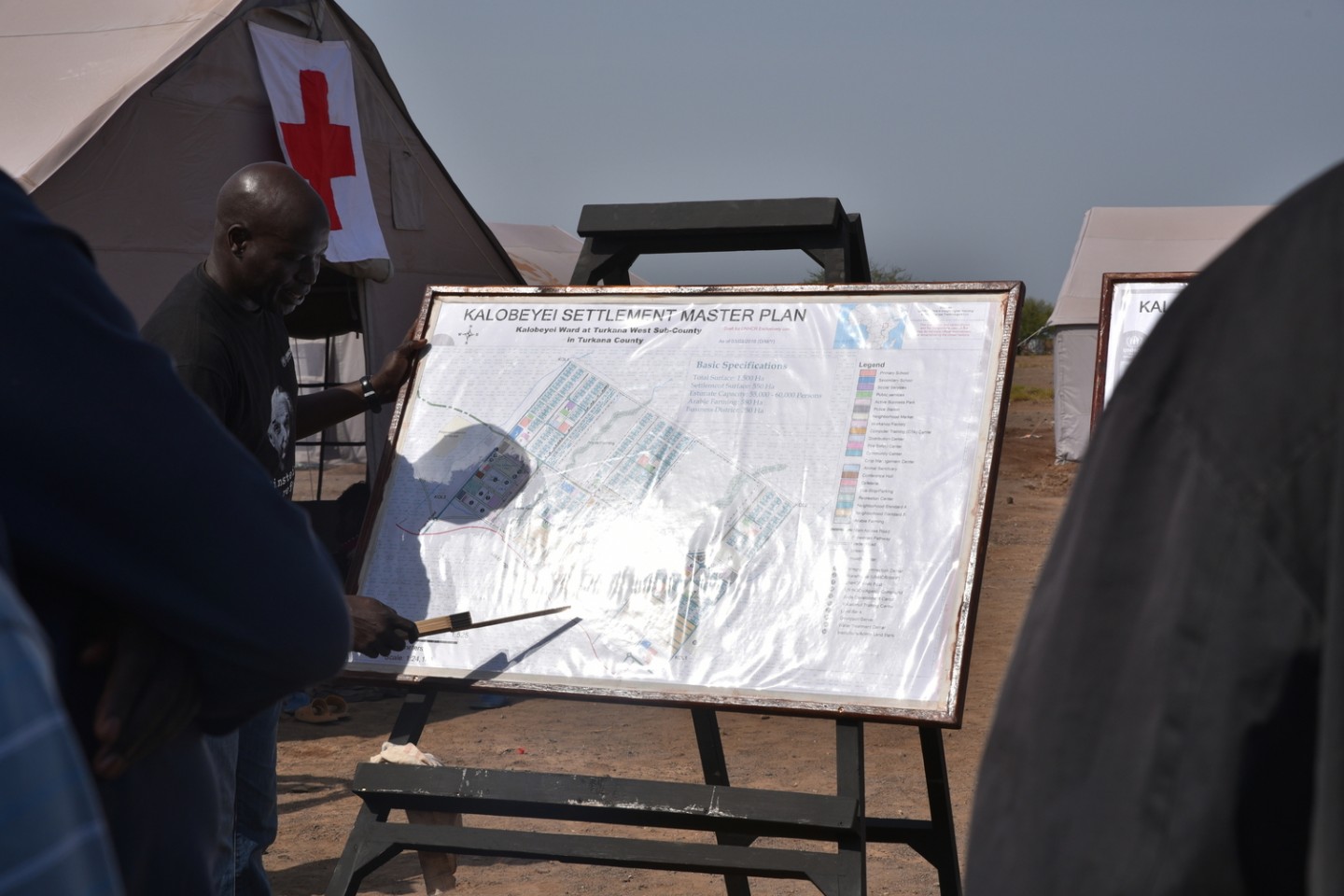Kalobeyei Settlement
In June 2015, the Turkana County Government allocated about 1,500 hectares of land for a new refugee settlement near Kalobeyei Township
As two years have passed since the beginning of the crisis in South Sudan, and as the refugee response has been progressively consolidated in the countries of asylum including in Kenya, it becomes imperative to strengthen the emphasis on interventions that promote self-reliance, build up resilience, and that seek longer-term solutions for the South Sudanese refugees.
Located in the Turkana County in north-western Kenya, the Kakuma Refugee Camp has been hosting refugees from East and Horn of Africa since 1991. The camp is currently hosting about 184,000 refugees and asylum seekers, about 15% of the total population of the Turkana County. The ongoing care and maintenance programme, which was based on the assumption that the refugee situation is temporary, focuses on providing refugees with basic humanitarian assistance, including free food, non-food items and basic services. With the displacement situation ongoing for over two decades, the current form of aid is not tailored to the needs, situation and prospects of refugees and host communities. The economic potential of the camp has not been fully utilized and the host community, which is one of the most marginalized in Kenya, feels that it has not benefited much from the presence of refugees.
At the November 2014 Turkana Roundtable on the Integration of Refugees and Host Community Economies – an event opened by the Governor of Turkana County, Mr. Josphat Nanok – there was a clear consensus on the need for a different approach to refugee assistance programming in the county, to avoid a situation similar to the economic collapse that followed the repatriation of Sudanese refugees in 2005. The new refugee settlement that is being planned to accommodate the increasing number of refugees in Kakuma provides an opportunity to pilot a different and better approach to refugee assistance programming. In June 2015, the Turkana County Government allocated about 1,500 hectares of land for a new refugee settlement near Kalobeyei Township. UNHCR and the Ministry of Interior and Coordination of National Government have agreed with the Turkana County Government to develop a settlement that would promote the self-reliance of refugees and host communities by providing them with better livelihood opportunities and enhanced service delivery. In collaboration with the World Bank, UNHCR is currently developing the Kalobeyei Integrated Social and Economic Development Programme (KISEDP), a multi-agency collaboration to develop the local economy and service delivery at Kalobeyei. This represents a major paradigm shift. The overall objective of this initiative is to re-orient the refugee assistance program to contribute to improvement of the socio-economic conditions of the refugees and host communities, better prepare the host community to take advantage of emerging economic opportunities in upcoming extraction and potential irrigation-fed agriculture and reduce over-dependence on humanitarian aid and support the refugees to achieve durable solutions.
The 14-year project (2016-2030) is led by four thematic working groups and a development committee, and takes the Turkana CIDP (County Integrated Development Plan) as its basis. Key characteristics are sustainable urban and agricultural/livestock development for the host community (estimated population of 20,000) and refugees (estimated population of 60,000), non-discriminatory services for both, avoidance of parallel service delivery and private sector involvement. The site is to be developed as an urban centre, using the same development and planning techniques, developers, assessments etc. as for cities, in collaboration with the WBG (master plans, community engagement, sustainability etc.). Conceptual framework for the development is the Local Economic Development (LED) approach, to facilitate collaboration between public, business and non-governmental sector partners to create better conditions for economic growth and employment generation in Kalobeyei. Both refugees and host communities will benefit from: (a) investments in basic infrastructure and access to social services; and (b) increased opportunities for supporting income generating activities. The Program will include features to promote community participation and ownership. Refugee and host communities will play an increased role in prioritizing needs, identifying service delivery and livelihoods interventions, and in monitoring the implementation of projects. The increased community voice and role in budget decision-making, design and implementation of development interventions will support social accountability and could contribute to improved social cohesion between refugees and host communities.
Read more about the Development of the Kalobeyei settlement here.



